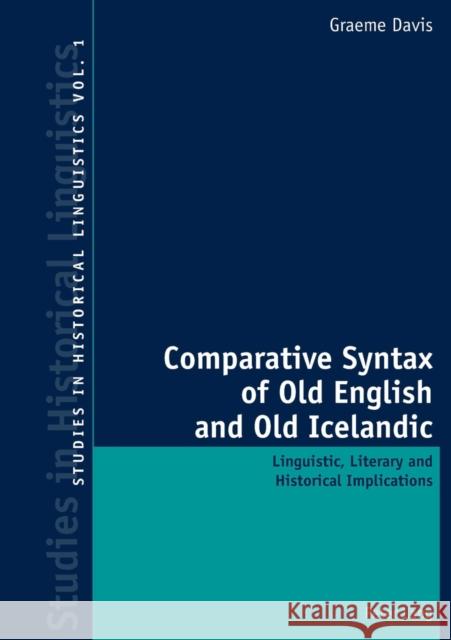Comparative Syntax of Old English and Old Icelandic: Linguistic, Literary and Historical Implications » książka
Comparative Syntax of Old English and Old Icelandic: Linguistic, Literary and Historical Implications
ISBN-13: 9783039102709 / Angielski / Miękka / 2005 / 189 str.
Comparative Syntax of Old English and Old Icelandic: Linguistic, Literary and Historical Implications
ISBN-13: 9783039102709 / Angielski / Miękka / 2005 / 189 str.
(netto: 319,56 VAT: 5%)
Najniższa cena z 30 dni: 333,73
ok. 10-14 dni roboczych.
Darmowa dostawa!
Study of the syntax of Old English and Old Icelandic has for long been dominated by the impressions of early philologists. Their assertions that these languages were -free- in their word-order were for many years unchallenged. Only within the last two decades has it been demonstrated that the word-order of each shows regular patterns which approach the status of rules, and which may be precisely described. This book takes the subject one step further by offering a comparison of the syntax of Old English and Old Icelandic, the two best-preserved Old Germanic languages. Overwhelmingly the two languages show the same word-order patterns as do the other Old Germanic languages, at least as far as can be determined from the fragments which have survived. It has long been recognised that Old English and Old Icelandic have a high proportion of common lexis and very similar morphology, yet the convention has been to emphasise the differences between the two as representatives respectively of the West and North sub-families of Germanic. The argument of this book is that the similar word-order of the two should instead lead us to stress the similarities between the two languages. Old English and Old Icelandic were sufficiently close to be mutually comprehensible. This thesis receives copious support from historical and literary texts. Our understanding of the Old Germanic world should be modified by the concept of a common -Northern Speech- which provided a common Germanic ethnic identity and a platform for the free flow of cultural ideas."











